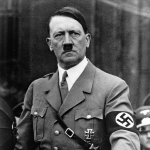Background
Heinz Guderian was born on June 17, 1888, in Kulm, West Prussia, German Empire (now Chełmno, Poland). He was the son of Friedrich and Clara Guderian. His father and grandfather were Prussian officers. Guderian also had a brother.

1939
General Heinz Guderian receives the Knight's Cross from Adolf Hitler.
1940
Germany
General Heinz Guderian
1940
Bouillon, Belgium
German General Heinz Guderian on an inspection tour in Bouillon on May 12, 1940.
1940
German General Heinz Guderian
1940
Langres, France
General Heinz Guderian after the battle for Langres.
1940
General Heinz Guderian in his command car of the 19th armoured division.
1940
Le Quitteur, France
German General Heinz Guderian conferring with staff on the road in Le Quitteur on June 16, 1940.
1941
Heinz Guderian, Inspector General of the Panzer Troops during World War II, stands on top of a Tiger tank to address his men.
1941
Heinz Guderian visiting a panzer regiment at the frontlines in August 1941.
1943
General Heinz Guderian of Germany looks out the window on a flight during World War II.
1944
General Heinz Guderian, Hermann Goering, and German leader Adolf Hitler looking over plans for Wacht Am Rhine, the winter offensive which became known as the Battle of the Bulge.
1944
Heinz Guderian with members of the Hitler Youth who are helping to build barricades.
1944
General Heinz Guderian and Hitler Youth leader Artur Axmann review a formation of the East Prussian Hitler Youth who were detailed to build a trench.
1944
Heinz Guderian, Hans Lammers, and Himmler at a Volkssturm militia rally in October 1944.
War Academy, Berlin, Germany
The War Academy where Heinz Guderian attended a 3-year program.
The Iron Cross that Heinz Guderian received on October 27, 1939.
The Iron Cross, 1st Class that Heinz Guderian received on November 8, 1916.
The Order of the White Rose of Finland that Heinz Guderian was awarded.
The Honour Cross of the World War 1914/1918 that Heinz Guderian was awarded in 1934.
The War Commemorative Medal that Heinz Guderian was awarded.
The Wehrmacht Long Service Award that Heinz Guderian was awarded.
The Anschluss Medal that Heinz Guderian received in 1939.
The Panzer Badge, that Heinz Guderian received.
The Eastern Front Medal that Heinz Guderian was awarded.
The Sudetenland Medal that Heinz Guderian received in 1938.
The Order of St. Sava that Heinz Guderian received on November 21, 1939.































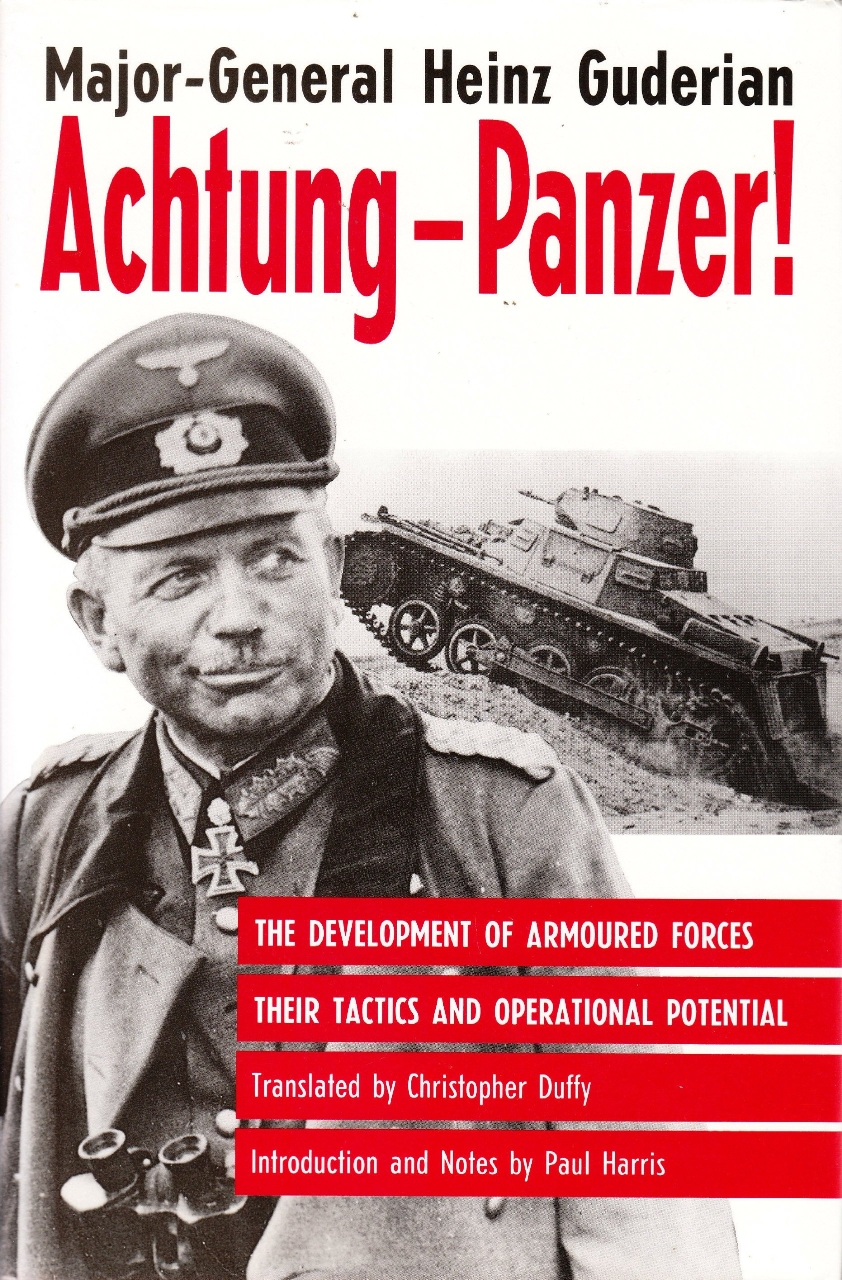
(A rare, enlightening account by an outstanding soldier re...)
A rare, enlightening account by an outstanding soldier reveals his thoughts and theories on armored warfare and motorized land battle which he then put in action to devastating effect during World War II. Guderian's treatise on the importance of tank development and on modern mechanized technology shows exactly why the Germans dominated land warfare in the early stage of the fighting.
http://www.amazon.com/gp/product/1854092820/?tag=2022091-20
1937
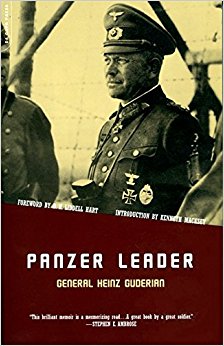
(Panzer Leader is a candid and dramatic account of the dev...)
Panzer Leader is a candid and dramatic account of the development and campaigns of the panzer forces that, along with the Luftwaffe, stood at the heart of blitzkrieg; it is also a searing group portrait of the Third Reich's leading personalities as they turned early victory into a protracted, agonizing defeat.
http://www.amazon.com/gp/product/0306811014/?tag=2022091-20
1950
Heinz Guderian was born on June 17, 1888, in Kulm, West Prussia, German Empire (now Chełmno, Poland). He was the son of Friedrich and Clara Guderian. His father and grandfather were Prussian officers. Guderian also had a brother.
Heinz Guderian attended the Principal Cadet School at Gross-Lichterfelde in Berlin from 1903 to 1907. He was also the youngest officer to attend a 3-year program at the War Academy in Berlin.
Heinz Guderian started his military career as a light infantry officer in the Tenth Battalion in 1907. In 1909, Guderian's division was transferred to Goslar in the Harz Mountains. In 1912, Guderian was transferred to the Third Telegraph Battalion in order to become a specialist in the new radio-signal equipment. The First World War began soon, and during this time he worked with the initial wireless technology which was not easy to understand. In the later stages of the First World War, Guderian served as an intelligence officer. In 1918, he started working as a signals officer in the 5th Cavalry Division and later that year became a General Staff officer.
After returning from the war, Heinz Guderian started teaching military tactics and also got his articles published in military journals. In 1922, he became the inspector of motorized troops and started studying all available material about tanks and interviewing tank units. He also developed theories and ideas about bringing armored warfare. In 1930, Guderian got the opportunity to become the commander of a motorized battalion. In 1934, he was named the division's chief of staff. Three Panzer divisions were created, but without tanks since equipment, officers, and trained men were in short supply. Guderian served as commander of the 2nd Panzer Division from 1935 to 1938. In 1939, he was named commander of the XIX Army Corps and led a highly successful attack on Poland. In 1940, Guderian led the 2nd Panzer Army through the Ardennes and across Northern France. Success on the Western Front, which the entire German army could not accomplish in all the years of World War I, made Guderian a national hero.
When Hitler began planning an invasion of Russia, Guderian did not agree with this idea. However, he soon acquiesced and led one of the four Panzer corps (Second Panzer Army) into Russia. In less than two months, Guderian won a number of important victories in Minsk and Smolensk and carried the battle to within 200 miles of Moscow.
When Guderian learned that Hitler intended to transfer his division to the South, he confronted the Nazi leader. Hitler, using his powers of persuasion, convinced him to back the move. The move to the South was initially successful and Guderian played a major role in the victory in Kyiv. Turning North once again, with weary soldiers and worn-out vehicles, he joined the delayed drive toward Moscow. Guderian refused to follow Hitler's orders when he was told to tolerate the harsh Russian winter. He pulled back his forces instead. This resulted in Hitler dismissing him.
However, in 1943, Guderian was recalled to be inspector general of Panzer forces. On July 21, 1944, after the plot to assassinate Hitler on July 20 failed, Guderian was appointed as the chief of staff of the army. His main focus was the defense of the Eastern Front. He knew the war could not be won but still had not resolved himself to Germany's total defeat. Later, he flagrantly opposed Hitler in meetings. Hitler had to get rid of Guderian. As a result, Hitler ordered him to take six weeks' sick leave. Guderian with his family went to Munich where he underwent treatment for his heart condition. The American forces captured Guderian on May 10, 1945. Most of his captivity was spent writing articles on his experiences and commenting on the German war effort.
Heinz Guderian was released in June 1948. He wrote his memoir, Panzer Leader, which was translated into ten languages and became an international best-seller in 1952. Soon after its publication, Guderian's health failed. He died in Schwangau bei Fussen, Germany, on May 17, 1954.
Heinz Guderian was a German general, who was known for the development of the "blitzkrieg" method and armored warfare during the Second World War. He was also the brain behind the spread of radio communication among tank crews. Guderian helped Germans win wars across Europe.
Heinz Guderian received numerous awards, including the Iron Cross, the Panzer Badge, the Wehrmacht Long Service Award, and the Order of the White Rose of Finland. He was also honored with the Order of St. Sava, 1st Class in 1939.
(Panzer Leader is a candid and dramatic account of the dev...)
1950(A rare, enlightening account by an outstanding soldier re...)
1937Although Guderian was an ardent anti-communist, he was politically ambivalent. Patriotism was his principal political affiliation. Guderian remained an ardent German nationalist for the rest of his life.
Guderian believed that among those things needed for success was for commanders of mobile forces to be able to communicate with each other and their sub-units. That is why he insisted that German tanks be equipped with radios and intercoms (throat microphones) to enable each tank commander to communicate with his crew and with other tanks in his platoon and company.
Quotations:
"Actions speak louder than words. In the days to come the Goddess of Victory will bestow her laurels only on those who prepared to act with daring."
"We have severely underestimated the Russians, the extent of the country, and the treachery of the climate. This is the revenge of reality."
"You hit somebody with your fist and not with your fingers spread."
"To imitate the ostrich in political matters has never been a satisfactory method of avoiding danger. Yet this is what Hitler, as well as his more important political, economic and even military advisers, chose to do over and over again."
"New weapons require new tactics. Never put new wine into old bottles."
Heinz Guderian was one of the few German generals who dared to argue with the Fuhrer and defend his opinion. He had a reputation for being a wilful and poorly managed commander.
As a young officer, Guderian enjoyed riding horses, hunting, and architecture. He also was nicknamed "Schnelle Heinz," meaning "Quick Heinz." He earned this nickname because he climbed the stairs of success quickly.
Physical Characteristics: The cause of Guderian's death was liver disease.
Quotes from others about the person
Hermann Balck: "The decisive breakthrough into modern military thinking came with Guderian, and it came not only in armor but in communication."
Heinz Guderian married Margarete Goerne on October 1, 1913. The marriage produced two sons.
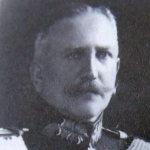
Friedrich Guderian (August 3, 1858 – September 15, 1914) was a Prussian officer.
(February 26, 1865 – March 13, 1931)
(October 2, 1890 – 1941)
(March 23, 1893 – March 7, 1972)
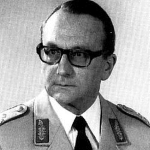
Heinz Günther Guderian (August 23, 1914 – September 25, 2004) was a German officer in the Wehrmacht and later a major general and Inspector of Panzer Troops.
Kurt Bernhard Guderian (September 17, 1918 – May 25, 1984) was a German officer in the Wehrmacht.
